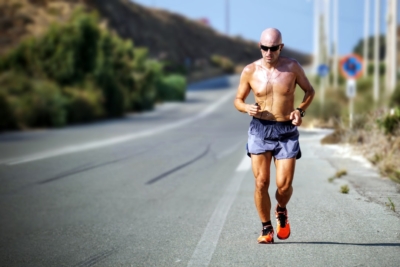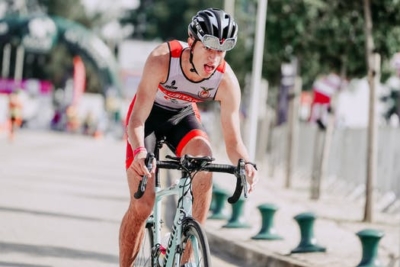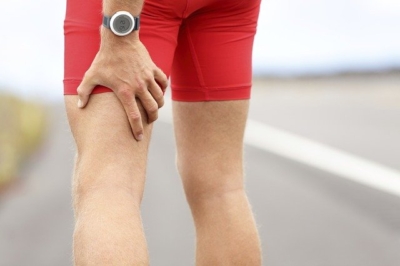4 Signs Dehydration is Affecting Your Performance
These 4 signs can mean dehydration is affecting your performance
As a triathlete, you want to push harder every training session to ensure you can give your best performance on race day. However, in this pursuit of improvement, a common issue you might encounter is dehydration. How do you know when you’re suffering from dehydration? Watch for these 4 signs of dehydration and keep it from affecting your performance. Pro tip: if you experience any of the 4 signs of dehydration, stop what you’re doing immediately, find shade, and hydrate.
1. Body overheating

If your body begins to overheat, stop immediately.
During your triathlon training, you need to monitor your body’s ability to cool itself. Dehydration increases the thickness of your blood while reducing its volume simultaneously. As a result, your skin won’t be able to dissipate the heat generated during your training session. Not only does this overheat your body, but you’ll find it harder to continue pushing yourself to your limits. Pro tip: these habits of successful triathletes are beneficial to any training plan.
2. Dizziness and headaches

Signs you’re dehydrated include blurry vision, headaches, and dizziness.
Dehydration during triathlon training can have an adverse impact on your well-being if you don’t pay attention to your body. Signs you might be dehydrated include blurry vision, dizziness, headaches, and light-headedness. Due to overheating, you could experience chills, even if you train in a hot environment. This will increase your skin sensitivity and cause goosebumps. If you do live in a warmer climate, follow these tips to beat the heat.
3. Muscle cramps

Muscle cramps can indicate dehydration.
The intensity of training and dehydration can put immense stress on your body, especially when you’re increasing your bike mileage. Sweating and extensive training on a daily basis increases how much sodium and fluid you lose. Sodium is essential as it is in charge of nerve impulse transmission, cognitive function, muscle contraction, and nutrient absorption in your gut. Lack of sodium affects your calorie intake while also causing your muscles to cramp.
4. Decrease in cardiovascular function
Due to the effects of dehydration, your heart won’t be able to pump the same amount of blood as it normally does. If you continue training under this condition, there will be a drop in your cardiovascular function. Your heart won’t be able to pump enough fresh blood to your muscles.
It’s imperative that you pay attention to your body during training. The more time spent training, the more you should hydrate beforehand and during. Check out these different ways to carry hydration during your runs. If you hydrate regularly on a daily basis, you can avoid many of these symptoms. Always make sure you replenish the fluids you lose while sweating, especially electrolytes. Remember, if you experience any of the 4 signs of dehydration, stop what you’re doing immediately, find shade, and hydrate.











